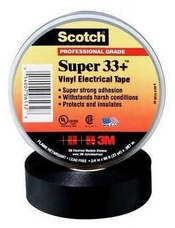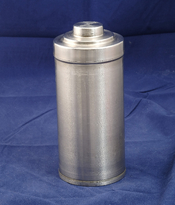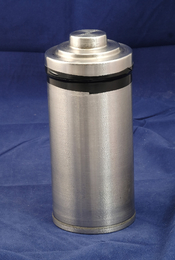OP mentioned 100ML "dripping" out. This sounds more like a major rather than minor issue. Recommended "gentle agitation", "figure eights" and "burps" are all on the mark as general guidelines. If you're willing to stick to your gear, the issue is fixable.
FWIW, as an ex-JOBO user, I'm EXTREMELY happy with Paterson tanks and lids. Mostly, their wide use means you have a LOT of choices for alternate reels whereas the more expensive JOBO equipment doesn't really have the same breadth of alternatives. Don't get me wrong: JOBO gear is excellent, and it's bulletproof aspects helped get things on the right keel when I was starting out. But as one who's spent $'s on gear to fix my technique issues.... it's neither ideal nor necessary as a course of action. But yes, it has virtues, but if I'd fixed my technique issues at the start, I'd have saved a lot of $'s. Paterson gets it done, and I like the wide tab AP reels far more than ANY JOBO reel as easy to get my film on to, and I have the pinwheel style reels for these tanks for 4X5 which are equally easiesr to load than JOBO's own 2509's. And so in coming back to film, I worked a number of youtubes, practiced gentle agitation, burping, and all the rest until I could manage it. Took about 10 minutes a day for a few days to get it, and then I'd practice before starting just to refresh as a "warm up". And it just worked, and I think the upside is the ability to use infrequent agitation (3 minute intervals) to reduce grain and get other positive effects.
But if I were to debug this from my own failures, I think there's a place where it is easy to rush the development process focused on the wrong things. In fact, "rushed" is a feeling that can be hard to resist initially, and very detrimental if it sets in.
Specifically, I think it is easy to over-focus on time to the point where the technique otherwise slips. At risk of much ire, I'd suggest focus on the practice of manual agitation to the point where your "leaks" are a few drops. Worry less about feeling rushed to go from one step to another. In fact, in between steps, I try to be orderly, but deliberate.... 'cause picking up the wrong chemical for a given step in the process can sink the whole. You don't generally have to rush here at all.
Let the clock run, but don't be alarmed by it either. Just take your time. Again, focus on being orderly and deliberate rather than precise. Burp that tank, do your 5 or 10 seconds of agitation (or whatever technique you've settled on). And simply allow yourself to do this like a slow and deliberate yoga exercise rather than some manic, Olypmic game of strength and speed. Nothing wrong with the Olympic approach per se if you're getting results you like. But it's not necessary either and can mean your likelihood of error rises. Manage a gentle technique as the first goal, and the precision in times will come along later. Film development is far less precise than textbooks present it to be, and like cooking, "close" is good enough. Yes, I round my clock times to nearby 5's and 10's.... but you could probably do this more if you wanted. Keep notes about what you're doing, review them and solve problems incrementally. Try to be consistent.
I'm self taught at an advanced age, and if I can do it, anyone can. Wish I had a teacher, but the film infrastructure these days is wide, but thin enough that self-taught is likely common. And it's not hard. It's actually kind of fun. Mistakes happen, but they're not fatal either.
But to underscore this, think of the gourmand who notices different ingredients (or claims to) with his/her tongue. They never mention, "Sure tastes like you let it cook 10 seconds longers and stirred it a bit slower." Film is more like this than we think. Spill a drop and you'll never notice the difference. Spill (and lose) 100ML in a 600ML tank, and you're actually missing a LOT of the impact. Results might still be okay.... but actually.... the issue might be that now if you really think it through, your development time for the mixture needs to be extended.... or adjusted in some other similar way. You can do this because the process is fairly organic. But get the technique.... understand the process, and you can adjust the whole for the mistakes and errors we all (or at least I) make and still come out fine most of the time. Also remember that whomever it is that writes up how a wine, beer or other beverage has overtones of peach, oak, etc. is more likely in my mind making up stuff that sounds good... and might be noticeable to 2% of the public. Similarly for my money, all but a few who can objectively describe the precise developer and technique used from viewing a print is probably faking it, too.





